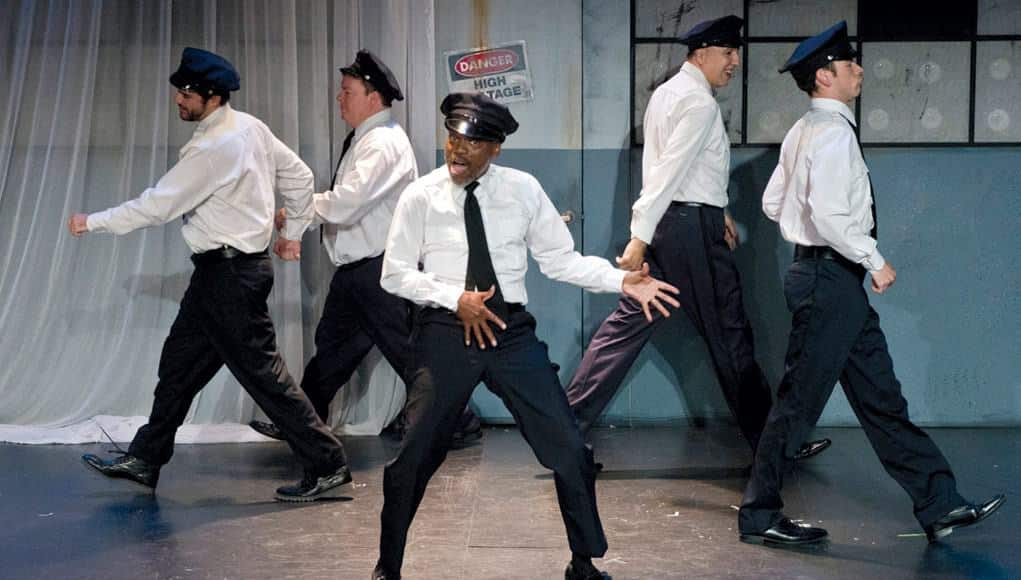Arts Organizations Reflect on COVID-19
by Rebecca M. Alvin
As the shoulder season runs out, many of us are just starting to process what happened this summer. Our relatively short season was made even shorter and more complicated by the COVID-19 pandemic, the impact of which will be felt for years to come, even if it is contained this winter. The Outer Cape tourist economy is largely based on arts and cultural activities, nonprofit and for-profit entertainment options, and of course the natural environment. No sector was immune to the impacts, however the impact on nonprofit arts organizations is particularly significant because of the fragility of these institutions to begin with. Reliant upon ticket sales, mostly for indoor events and exhibitions that were not legal until the season was half over, as well as the generosity of donors often courted at fundraising events that had to be canceled, these organizations had to get creative about not only their programming but their business models. Theaters shuttered, festivals downsized or canceled, virtual programming that didn’t quite replace the live kind, and bare bones operating budgets became the norm. And yet there is a palpable optimism in the responses from the organizations surveyed about how they made it through, what the future holds, and how to make lemonade out of lemons.
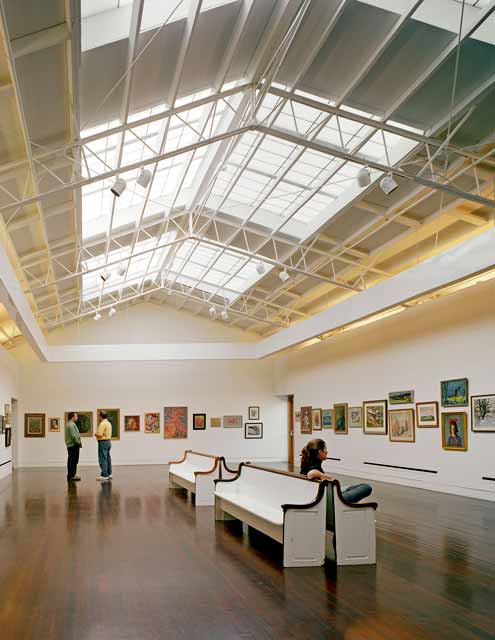
According to Americans for the Arts, the national impact on the arts and culture sector was a staggering loss of $14 billion this year. The nonprofit component of this sector lost $1.5 billion, an amount it will find difficult to replace in the coming years. The Provincetown International Film Festival reconfigured itself as a scaled-down, mostly virtual event this past July, with some screenings and Q&As at the Wellfleet Drive-in; The Provincetown Art Association and Museum (PAAM) —a year-round institution— was unable to open at all until July and had to postpone five of its planned exhibitions; Harbor Stage Company and Wellfleet Harbor Actors Theater (WHAT) in Wellfleet both canceled their entire seasons, as did Provincetown’s Peregrine Theatre Ensemble; the Provincetown Theater moved its shows online, unable to safely and responsibly present live theater even now; the Fine Arts Work Center (FAWC) postponed its entire slate of summer workshops and canceled its Summer Awards Gala and its auction, losing all of its major sources of revenue, Truro Center for the Arts at Castle Hill canceled a major source of income, the annual International Encaustic Conference, which is still uncertain for 2021; and after years of carefully planning the commemoration of the landing of the Pilgrims in Provincetown 400 years ago, a full slate of historical and cultural programming, a gala, a memorial service, and a major fireworks display were all canceled by the Pilgrim Monument and Provincetown Museum.
“It was a real shock to the system,” says Brenda Withers of Harbor Stage Company. The 88-seat, artist-run theater, committed to the importance of the live theater experience had to cancel three full productions, two staged readings, and their annual fundraiser, demonstrating the fragility of the best laid plans.
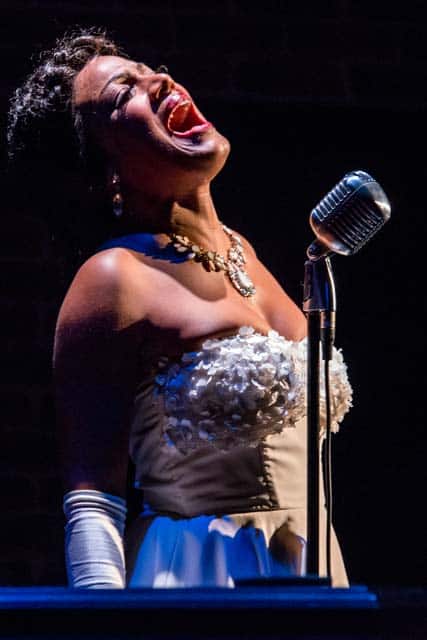
“We drastically changed everything. I think there wasn’t anything that didn’t get changed,” laments Anthony Lawson, Provincetown Film Society Board President. “Beyond that, all of our fundraising had to be canceled, and that was a major, major blow to the organization.”
But in times of struggle, people in the arts are actually better equipped to ride things out because they are used to creative thinking. And all of the respondents found silver linings in their seasons, even as they acknowledge the heavy price paid for these lessons and no one wants to go through this continuously. The Provincetown Theater made good on its commitment to presenting five shows this year by switching to virtual programming. WHAT made its stage available to the community to livestream events, such as this year’s Wellflett OysterFest Annual Shuck-Off Contest. And Castle Hill moved from 175 in-person workshops normally offered to 50-plus online workshops, something they’d never done before but feel confident they will continue moving forward as at least one component of their model. Executive Director Cherie Mittenthal says, “The silver lining was we reached across the country and internationally to take part in virtual workshops, so our base grew and the limitation of place wasn’t an issue.” She adds it was also beneficial for her staff to learn this new way of conducting educational programs.
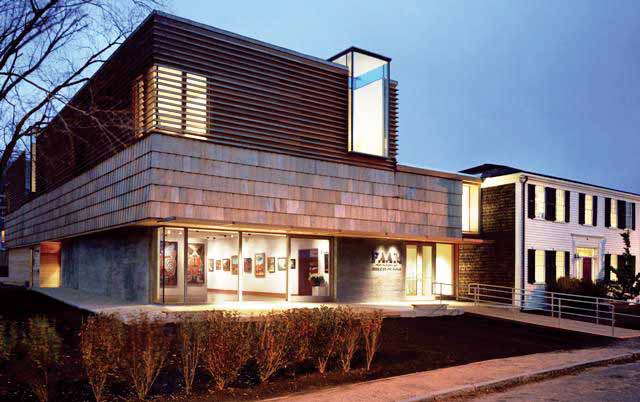
But for many, it was the deepending of relationships in the community, amongst the populations they serve, and most significantly with donors. At PAAM, their Board matched up to $50,000 donated by friends and members of the organization and at WHAT, Executive and Artistic Director Christopher Ostrom says nearly 85 percent of ticket holders chose to convert their tickets to donations or a credit for 2021 in lieu of refunds for the canceled shows, for example.
Planning for the 2021 season is now very much on people’s minds. There are so many unknowns as of this writing in late October 2020. For some in the nonprofit arts world, the best way to plan is to have multiple options and to keep an open mind, ready to change course if needed. Provincetown Theater Artistic Director David Drake breaks it down into three main strategies: following the science and advice of experts to shape ideas around what’s safe for all; staying open to the ideas of everyone on the team, “but don’t get too attached to any one of them”; and keeping the conversation “fluid” to allow for inevitable unexpected disruptions.
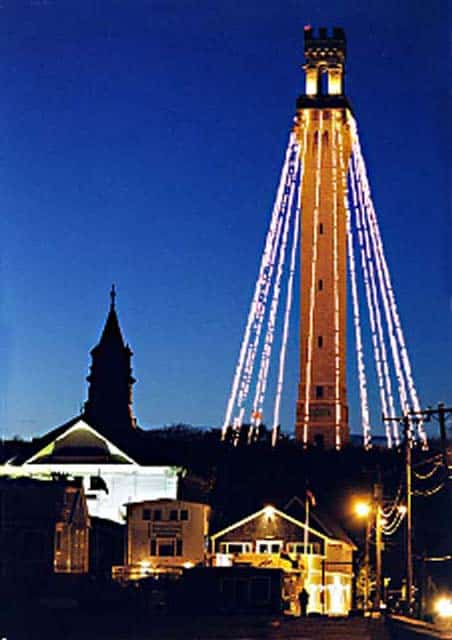
November 11 this year.
In all cases there is a renewed commitment to the community that supported them as best they could in this devastating year. Adam Berry of the Peregrine Theatre Ensemble was inspired by the Provincetown Tennessee Williams Theater Festival’s motto this year: “If we can, we will.” Thinking about 2021, he says, “I don’t know what it’s going to look like or what the future holds but we will persevere if we can, safely. Otherwise we just postpone again.”
Whatever happens, our resiliency as a community, the support of audiences and donors, and the creativity of artists and arts organizations are critical components of a post-COVID future where going to a film festival, being in a room surrounded by art, studying and socializing with great artists and writers in person; and witnessing that which can only be felt emanating from performers in a live venue will all be part of our everyday reality, never to be taken for granted again. Provincetown Magazine looks forward to reporting on all of their season’s offerings in 2021.

